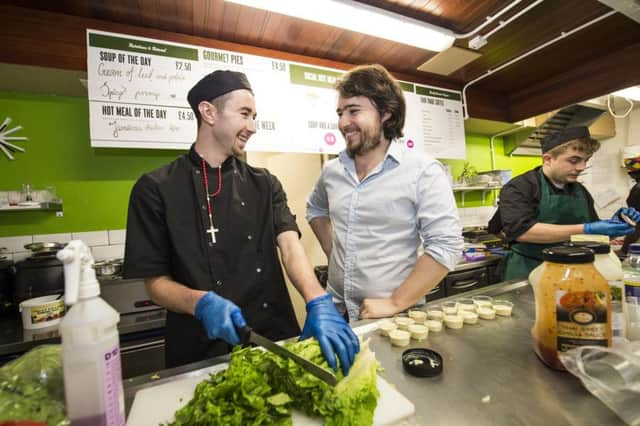We're working together to create a fairer society for every one of us


This is a creative and inspiring movement of people, united around clear social aims. It includes community-owned businesses, co-operatives, enterprising charities, housing associations, credit unions and much more. Social enterprises provide jobs for ex-offenders, organise ethical finance, run inclusive sports centres and work in a wide range of other areas.
A robust debate about definitions, within a constantly evolving business landscape, is something we welcome. Indeed, definitions vary across the UK and the rest of the world. What unites us is a desire to do good, make everyone’s lives better and improve our natural environment.
Advertisement
Hide AdAdvertisement
Hide AdThe past couple of years have seen a number of exciting developments within our social enterprise community. The first ever large-scale census of social enterprises was produced at the end of 2015 and now gives us a baseline with which to compare future success. It showed us that there were more than 5,100 social enterprises in Scotland, providing over 112,000 jobs, with 200 formed each year, £8.77 billion in combined assets and a £1.68bn gross value added economic contribution.
For over a year the national organisations that support social enterprises have also come together to formulate a vision and strategy for the next decade. This work has been made up of a series of online and face-to-face consultations with social entrepreneurs, as well as roundtable discussions with people from the private and public sectors, social investors and those working within a variety of specialist sectors.
This process has informed the work of the Scottish Government and given it a basis for forming a long-term strategy to support the growth of social enterprise.
There are many emerging hybrid organisations and business models that overlap with social enterprise. We should recognise and appreciate their contribution as part of the bigger picture – while always promoting the range of social enterprise models as the best way forward. B Corporations – private sector businesses that sign up to a regulated ethical activities scheme – are one such example, as part of the growing movement of ethical and green businesses. Innovation and positive reform in our public services should also be embraced, particularly where we include Public-Social Partnerships of social enterprises working together with public service providers.
Social enterprises seek to change the world for the better – that’s our shared purpose – and something that’s shared by many others in our civic society. But we also need realistic expectations, as we’re just one part of the solution to building a better, more equal society and a more resilient and sustainable economy.
The big picture is important. The overarching aim for Scotland’s social enterprise movement should be about joining up with other emerging social and economic movements. Social enterprise is a progressive business community but needs to ensure it’s part of this wider movement. We need to recognise the different strands of positive change that will take us forward.
Ultimately it’s about building a society and economy that provides for all of us – something that those from all political viewpoints should feel able to support. Inclusive growth, competitive businesses, social justice and community empowerment are mutually reinforcing. Therefore we must refocus the economy on more socially and environmentally positive business activities and divest from short-term activities that create social and economic harm.
This should all be about creating a much more democratic economy, with employees shaping their workplaces and locally owned and managed businesses as the default for economic activity. This is also about high quality, secure, high-paying jobs and spreading economic benefits, particularly to towns, rural communities and areas of multiple deprivation.
Advertisement
Hide AdAdvertisement
Hide AdSocial enterprises need to reach out to those with shared values and not retreat into the familiarity of a comfort zone. For Scotland’s social enterprise community to move forward we need to modernise, remain relevant, improve how we support and develop social enterprise and not fear change. Only with that kind of positive engagement and open-minded action will we see Scotland become the leading social enterprise nation.
Duncan Thorp is policy and communications officer, Social Enterprise Scotland, www.socialenterprisescotland.org.uk